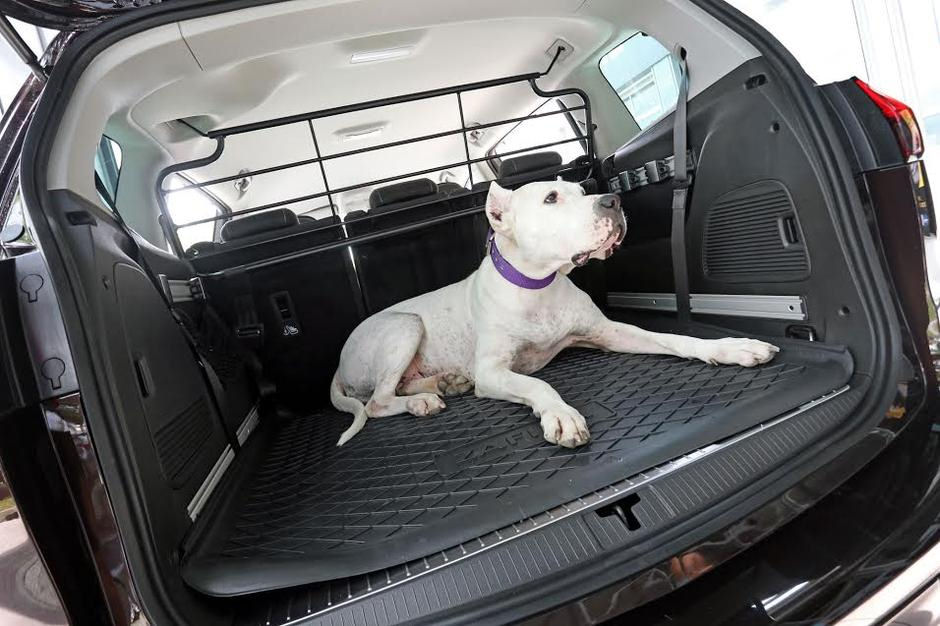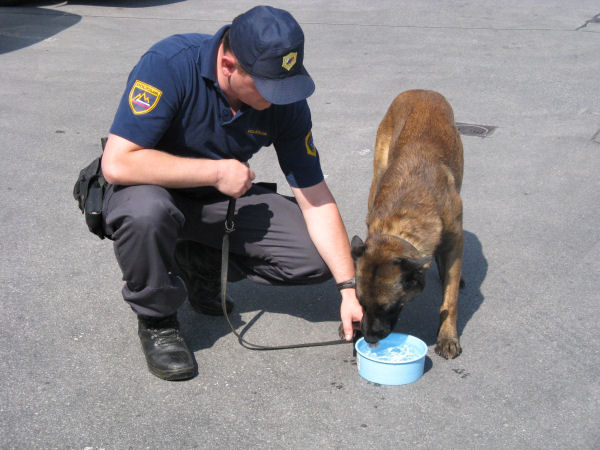In summer, it is not unusual for temperatures in the atmosphere to reach over 30 degrees Celsius. Humans can adapt to this, but this is not always the case for pets. They can retreat into the shade, but they cannot take off their fur. That's why we also take care of them before leaving home!
 Adequate care includes fresh water, food and, of course, shade
Adequate care includes fresh water, food and, of course, shade
Due to their different body structure and biological characteristics, animals regulate heat differently, so they need appropriate care on hot days. Provide them with a suitable place in a shaded position, preferably in cold rooms. They should have fresh drinking water and food available. This applies to all animals, not just dogs and cats, which are the most common pets.
Special conditions for transporting animals
If you are going to spend your holiday together with your pets, you should be aware that the Animal Protection Act stipulates special conditions for the transport of animals, and care must be taken not to transport animals that are not capable for transport. Animals that you will transport with you should be given special care, such as ensuring adequate ventilation, temperature, sufficient amount of water, etc. If your pet is a dog, remember to keep it on a leash in public places.
Violation of these provisions during transportation, as well as during everyday handling of the animal, is considered torture and as such is a misdemeanor, and in more severe forms, a criminal act.
Advice for owners or guardians of animals
|
 The police competences
The police competences
The supervision of the implementation of the Animal Protection Act and the regulations issued on its basis is directly carried out by official veterinarians, agricultural, hunting, fishing inspectors and inspectors responsible for nature conservation, each of them within the scope of their powers and competencess.
In addition to the services already mentioned, the police also have control over the implementation of certain provisions of this law, who takes action in the event of violations of the provisions. The tasks of the police are to deal with offenses under the Animal Protection Act which are within their jurisdiction and to deal with crimes of animal cruelty according to the Criminal Code.
In addition, the police cooperates with the competent veterinary and inspection services in the field of prevention and suppression of infectious animal diseases and provides them with assistance in the performance of their tasks when necessary. They also cooperate with animal protection societies when it comes to inappropriate slaughter or handling of animals, and with customs in case of animal smuggling across the border.
Statistics show that the most frequent violations occur on roads and markets. Most often offenders:
- do not provide the physical protection for dangerous animals;
- they do not have a dog on a leash;
- they do not have a dangerous dog on a leash with a muzzle or locked in a pen;
- they do not provide education and training or other measures and the animal is therefore dangerous to the surrounding area.
Ensure your own safety and the safety of others. May your holiday or vacation remain a fond memory!

